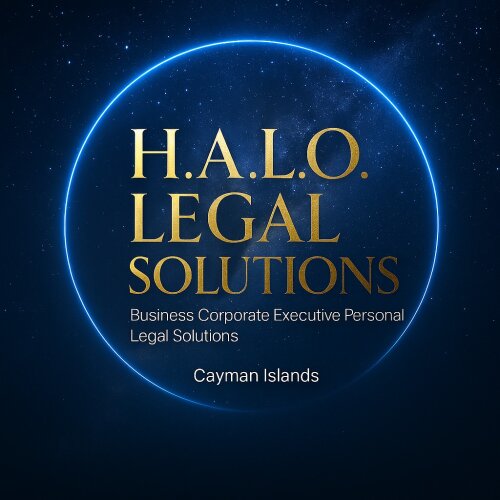Best Project Finance Lawyers in Cayman Islands
Share your needs with us, get contacted by law firms.
Free. Takes 2 min.
Or refine your search by selecting a city:
List of the best lawyers in Cayman Islands
About Project Finance Law in Cayman Islands
Project finance is a method of funding large infrastructure and industrial projects based on the projected cash flows of the project rather than the balance sheets of its sponsors. In the Cayman Islands, project finance is commonly used for sectors such as energy, transportation, telecommunications, and property development, leveraging the jurisdiction’s established legal and financial infrastructure. The Cayman Islands has become a leading domicile for international structured finance transactions, offering a stable and business-friendly environment for lenders and investors.
Why You May Need a Lawyer
There are several scenarios where individuals or corporations might require legal assistance with project finance in the Cayman Islands:
- Structuring and negotiating complex project finance deals
- Understanding regulatory compliance for cross-border investments
- Establishing special purpose vehicles or limited partnership structures
- Conducting due diligence on counterparties and assets involved in the project
- Drafting and reviewing finance, construction, and supply contracts
- Mitigating risks associated with security, collateral, and guarantees
- Handling disputes and enforcing rights in the event of default or insolvency
- Navigating tax considerations and ensuring efficient transaction structuring
- Addressing foreign investment restrictions, if applicable
- Coordinating with multiple stakeholders and regulatory bodies
Local Laws Overview
The Cayman Islands has a robust framework governing project finance, influenced by English common law and supported by modern local legislation. Some key aspects of the legal landscape include:
- Special Purpose Vehicles (SPVs): The jurisdiction allows the establishment of exempted companies, partnerships, and trusts which are frequently used as SPVs in project finance structures.
- Security Interests: Security documentation, such as charges or debentures, over Cayman-based or international assets can usually be structured flexibly. Security interests can be registered at the Companies Registry to provide priority and transparency.
- Insolvency and Enforcement: The Cayman Islands offers lender-friendly insolvency regimes and established processes for enforcing security, which provides comfort to investors and lenders.
- Tax Regime: The Cayman Islands has no direct taxes on income, corporations, or capital gains, making it especially attractive for complex, high-value project financing.
- Regulatory Oversight: Investment entities may be subject to the regulatory supervision of the Cayman Islands Monetary Authority (CIMA) depending on their activities and structure.
- Contract Enforcement: Courts in the Cayman Islands uphold contracts and provide effective legal remedies, with a legal system based on the rule of law and respect for international standards.
Frequently Asked Questions
What is project finance and how does it work in the Cayman Islands?
Project finance is a funding method where financing is based on the future cash flows generated by the project, not the creditworthiness of the sponsors. In the Cayman Islands, this often involves creating an SPV to isolate risks and facilitate the raising of capital.
Why is the Cayman Islands a popular jurisdiction for project finance?
The Cayman Islands offers a stable legal framework, tax neutrality, flexible company law, and a business-friendly regulatory environment, making it attractive for international project finance transactions.
What types of projects commonly use project finance structures in the Cayman Islands?
Common sectors include energy (renewable and non-renewable), infrastructure, real estate development, telecommunications, and shipping.
Do I need to register my project finance structure with local authorities?
Depending on the structure, registration of SPVs or the perfection of security interests may be required at local registries. Legal advice should be sought for specific requirements.
Can foreign sponsors and lenders participate in Cayman Islands project finance?
Yes, the Cayman Islands is an open jurisdiction, and there are no restrictions on foreign ownership or lending in most cases.
What are the key legal documents involved in project finance?
These may include loan facility agreements, security agreements, intercreditor agreements, project contracts, and shareholder agreements.
How is security granted and enforced in the Cayman Islands?
Security may be created over shares, accounts, project assets, or receivables. Enforcement typically involves court processes, but the law is lender-friendly and efficient in these matters.
Are there any tax implications for project finance structures in the Cayman Islands?
The Cayman Islands does not levy direct corporation, capital gains, or withholding taxes, enhancing returns for sponsors and lenders. However, tax implications in other jurisdictions involved in a project should be considered.
What is the role of the Cayman Islands Monetary Authority (CIMA) in project finance?
CIMA oversees and regulates certain types of investment entities, including funds and some structured finance vehicles, to ensure compliance and investor protection.
How do I choose the right legal advisor for project finance in the Cayman Islands?
Look for a law firm or attorney with specific experience in Cayman Islands project finance, knowledge of international structuring, and an understanding of both local and cross-border regulatory issues.
Additional Resources
If you require more information, the following resources and organizations may be helpful:
- Cayman Islands Monetary Authority (CIMA): Regulatory guidance for investment entities and financial services.
- Department of Commerce and Investment (DCI): Information regarding business licensing and investment guidelines.
- Cayman Islands Government - General Registry: Details on company, partnership, and trust registration in the Cayman Islands.
- Local law firms: Many reputable international law firms have offices in the Cayman Islands and publish guides and insights on project finance law.
- Industry publications: These often provide updates on legal and regulatory developments in Cayman Islands finance.
Next Steps
If you are considering a project finance transaction in the Cayman Islands or need legal advice, consider the following steps:
- Clearly identify your project’s objectives, stakeholders, and financing needs.
- Gather all relevant documentation, such as business plans, financial projections, and information on involved parties.
- Research and contact law firms or legal advisors with expertise in Cayman Islands project finance.
- Schedule a consultation to discuss your project, legal requirements, and any potential regulatory issues.
- Work with your chosen legal advisor to structure your transaction, conduct due diligence, and ensure compliance with local laws.
- Continue to seek legal guidance through the lifecycle of your project to navigate any changes in law or unforeseen issues.
Seeking early and qualified legal advice is crucial for a successful project finance transaction in the Cayman Islands, helping you mitigate risks and optimize your project’s potential.
Lawzana helps you find the best lawyers and law firms in Cayman Islands through a curated and pre-screened list of qualified legal professionals. Our platform offers rankings and detailed profiles of attorneys and law firms, allowing you to compare based on practice areas, including Project Finance, experience, and client feedback.
Each profile includes a description of the firm's areas of practice, client reviews, team members and partners, year of establishment, spoken languages, office locations, contact information, social media presence, and any published articles or resources. Most firms on our platform speak English and are experienced in both local and international legal matters.
Get a quote from top-rated law firms in Cayman Islands — quickly, securely, and without unnecessary hassle.
Disclaimer:
The information provided on this page is for general informational purposes only and does not constitute legal advice. While we strive to ensure the accuracy and relevance of the content, legal information may change over time, and interpretations of the law can vary. You should always consult with a qualified legal professional for advice specific to your situation.
We disclaim all liability for actions taken or not taken based on the content of this page. If you believe any information is incorrect or outdated, please contact us, and we will review and update it where appropriate.
Browse project finance law firms by city in Cayman Islands
Refine your search by selecting a city.
















